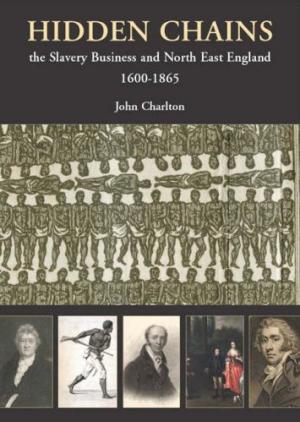
Hidden Chains
The Slavery Business and North East
England 1600-1865
by John Charlton
Pub City of Newcastle upon Tyne
Newcastle Libraries and Information Service
Tyne Bridge Publishing, 2008
ISBN 9781857951233
John Charlton’s book on the slave trade in the North- East of England is a regional history with a far wider -
transatlantic- reach. And it is not just a book either. It is a research project dedicated to trawling through archives to look for evidence of the slave trade and its opponents, and a popular local history initiative that
has seen John go on a speaking tour to explain what the project has uncovered. That has led to numerous reviews of the book in local papers and no doubt welcome publicity for the North East Labour History Society that John helps to run.
The book explains the origins and development of the anti-slavery movement in the North-East underlining its connections to religious dissent and the role played by prominent Tyneside politicians. But at the same time John demonstrates the huge popular support the movement had and seeks out evidence, previously ignored, of women’s support for anti-slavery petitions at time when politics was very much a male sphere.
John expertly links the situation on Tyneside with national political developments again taking the book beyond the reach of a local history. He underlines how opposition to slavery ebbed and flowed between the late eighteenth century and the American Civil War in the 1860s, sometimes relying on a handful of dedicated activists, at other times blossoming into a mass movement.
In the second half of the book the focus is on the north-east slave trade itself. This has remained very largely hidden from history with the centres of the slave trade taken to be Bristol and Liverpool. Newcastle was not in the same league but the links between ships sailing out of the port and sugar plantations and slavery are expertly teased out, the hidden chains as John calls them, underlining how slavery was intrinsic to the developing capitalist economy of the region.
The story ends in the 1860s with a new generation of antislavery activists, led by the radical Tyneside MP Joseph Cowen, shown left, agitating not just for emancipation of slaves but making the political point that black and white workers were ‘brothers’.
A final point that immediately strikes the reader is the production quality of the book with numerous colour plates. This is not a coffee table book. The pictures, often of notices for anti-slavery meetings and petitions, are intrinsic to the subject matter but also serve to underline that the book is the product of a significant research effort.
Keith Flett
No comments:
Post a Comment